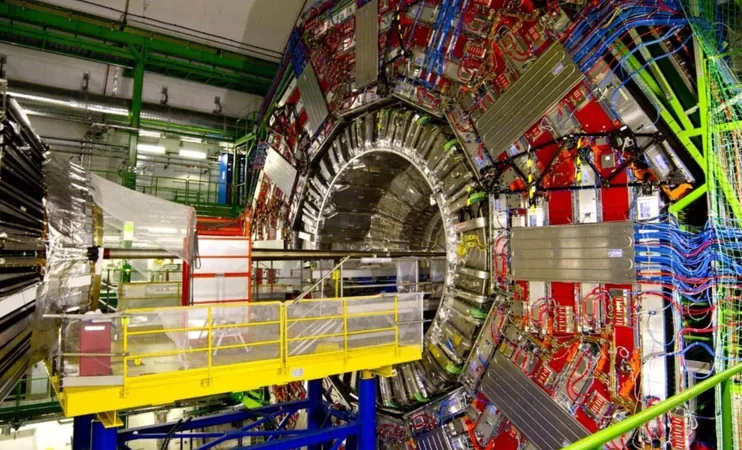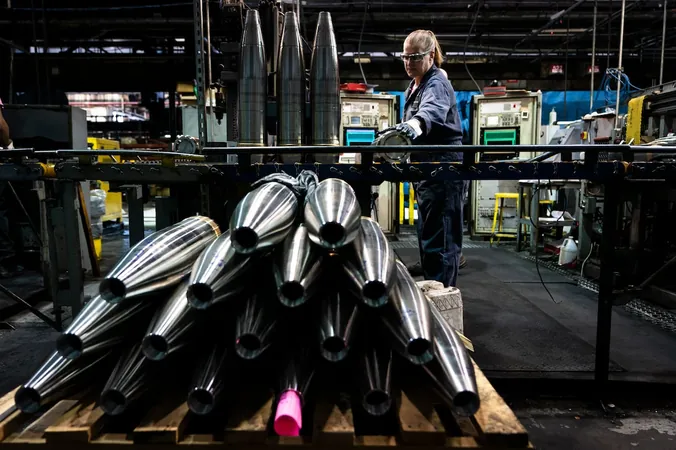
Japan Unveils Revolutionary Nuclear Battery That Could Eclipse Solar Power for Space Exploration
2025-06-18
Author: Jia
A Game-Changer for Space Exploration
As humanity pushes the boundaries of space exploration, a groundbreaking development from Japan could redefine how we power our spacecraft in the farthest reaches of the cosmos. The Japan Atomic Energy Agency (JAEA) is in the advanced stages of creating a revolutionary nuclear battery, promising to outlast traditional solar power sources by over a century.
Harnessing the Power of Americium
This ambitious project utilizes americium, a radioactive byproduct, as its energy source. Unlike solar panels that struggle in deep space or when light is scarce, this innovative technology could provide a constant, long-lasting power supply for space probes.
The new battery will harness the decay heat produced by americium, potentially allowing probes to operate for decades or even centuries. This breakthrough could unlock the secrets of distant planets, asteroids, and even the dark sides of moons where sunlight never shines.
Collaborative Innovations
Leading the charge, JAEA has partnered with the Japan Aerospace Exploration Agency (JAXA) and the National Institute of Advanced Industrial Science and Technology (AIST). Together, they aim to unveil a working prototype by early 2029, marking a monumental leap toward sustainable energy solutions for long-duration space missions.
Why Americium?
Americium offers critical advantages over traditional radioactive materials like plutonium. While plutonium has been a staple for deep space missions, its stringent regulations pose significant challenges. Americium, on the other hand, is more practical and safer to handle, making it a promising candidate for future space missions.
Despite its lower heat output compared to plutonium, americium’s decay can still effectively power essential communication and scientific instruments. According to Masahide Takano, a senior researcher at JAEA's NXR Development Center, "If implemented successfully, americium batteries could offer nearly perpetual power for space probes." This longevity makes them ideal for ventures into the most remote territories of space.
Testing Americium's Limits
JAEA has already demonstrated americium's potential by successfully using it to power light-emitting diodes (LEDs). This experiment confirmed that americium's decay heat can be effectively utilized for sustained energy.
To ensure safety, the agency plans to encapsulate the americium in protective pellets coated with additives and sealed within metal pins. This robust method aims to guarantee that americium remains secure, even in the event of a rocket launch failure.
The Future of Space Power
With the potential to revolutionize the way we power spacecraft, Japan's nuclear battery could render solar power obsolete for missions exploring the universe's farthest corners. As we stand on the brink of a new era in space exploration, all eyes will be on JAEA and their groundbreaking advancements.




 Brasil (PT)
Brasil (PT)
 Canada (EN)
Canada (EN)
 Chile (ES)
Chile (ES)
 Česko (CS)
Česko (CS)
 대한민국 (KO)
대한민국 (KO)
 España (ES)
España (ES)
 France (FR)
France (FR)
 Hong Kong (EN)
Hong Kong (EN)
 Italia (IT)
Italia (IT)
 日本 (JA)
日本 (JA)
 Magyarország (HU)
Magyarország (HU)
 Norge (NO)
Norge (NO)
 Polska (PL)
Polska (PL)
 Schweiz (DE)
Schweiz (DE)
 Singapore (EN)
Singapore (EN)
 Sverige (SV)
Sverige (SV)
 Suomi (FI)
Suomi (FI)
 Türkiye (TR)
Türkiye (TR)
 الإمارات العربية المتحدة (AR)
الإمارات العربية المتحدة (AR)